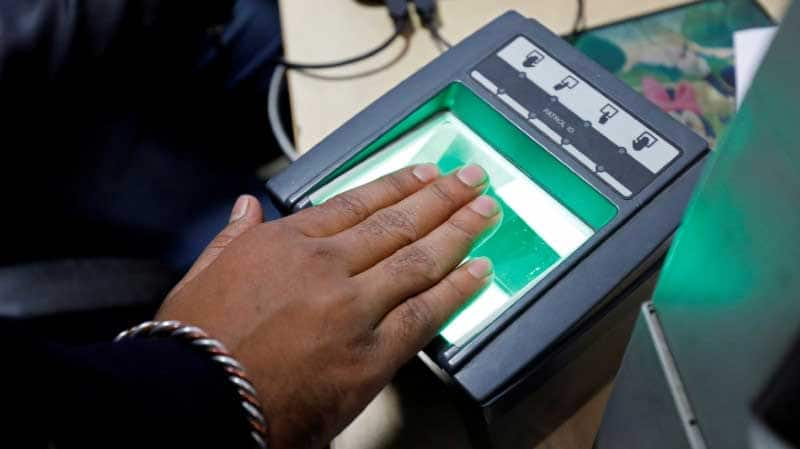NEW DELHI: The Supreme Court on Wednesday struck down the Section 57 of the Aadhaar Act which permitted private entities to use Aadhaar information to authenticate the identity of the person. While reading out the judgement on the validity of the constitutionality of Aadhaar, Justice AK Sikri said that Section 57 of the Aadhaar Act is unconstitutional.
With the SC striking down Section 57, private bodies like telecom companies, e-commerce firms, private banks and other such firms will no longer be able to ask for biometric details from consumers. "Data vulnerable to misuse by third party, private vendors, that too without consent of an individual," Justice Chandrachud said.
Section 57 read: Nothing contained in this Act shall prevent the use of Aadhaar number for establishing the identity of an individual for any purpose, whether by the State or any body corporate or person, pursuant to any law, for the time being in force, or any contract to this effect.
Asserting that Aadhaar is violative of Article 14 of the Constitution, Justice Chandrachud said, "It has been admitted by UIDAI that it stores vital data and it's violative of right to privacy. There is no institutional responsibility of UIDAI to protect data of citizens."
The apex court has declared the Centre's flagship Aadhaar scheme as constitutionally valid but struck down some of its provisions. A five-judge constitution bench headed by Chief Justice Dipak Misra held that Aadhaar would remain mandatory for the filing of IT returns and allotment of Permanent Account Number (PAN).
It would also not be mandatory for school admissions, as also for the examinations conducted by the Central Board of Secondary Examination, National Eligibility cum Entrance Test for medical entrance and the University Grants Commission.
The bench also struck down the national security exception under the Aadhaar (Targeted Delivery of Financial and other Subsidies, Benefits and Services) Act. It said Aadhaar is meant to help the benefits reach the marginalised sections of society and takes into account the dignity of people not only from personal but also community point of view.
The court said that Aadhaar is serving a much bigger public interest. "Aadhaar means unique and it is better to be unique than being best," the SC said.
There are three sets of judgements being pronounced. The first of the three verdicts was pronounced by Justice A K Sikri who wrote the judgement for himself, CJI and Justice A M Khanwilkar. Justice Chandrachud and Justice A Bhushan, who are part of the bench, have written their individual opinions.
















